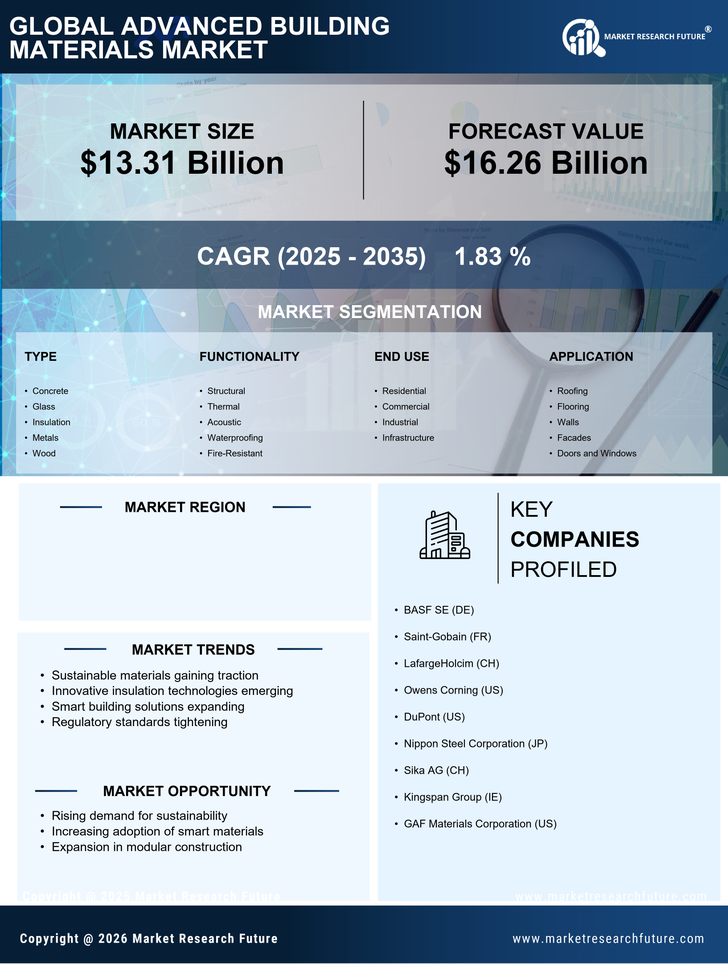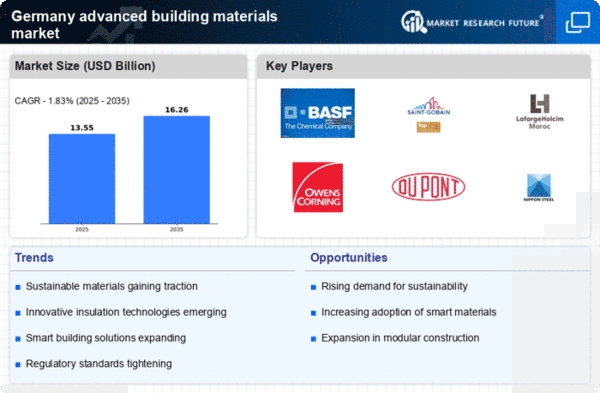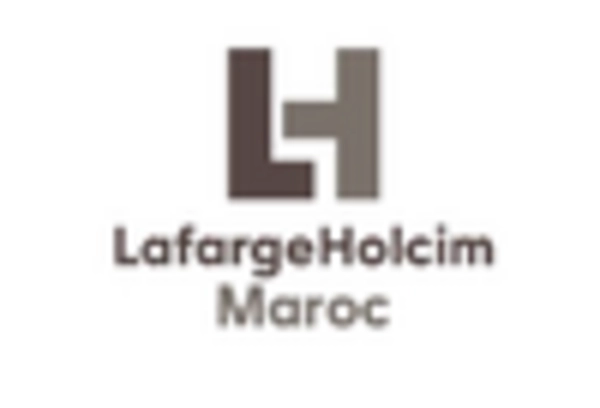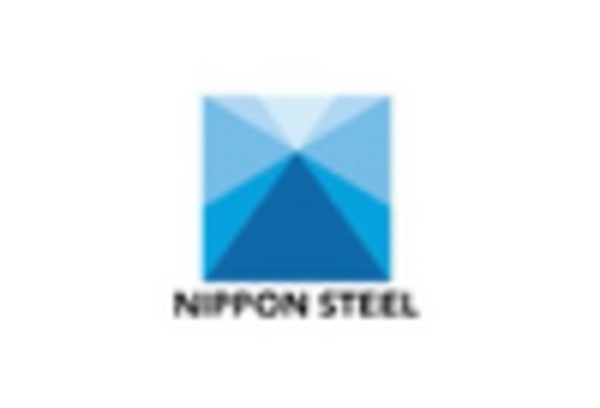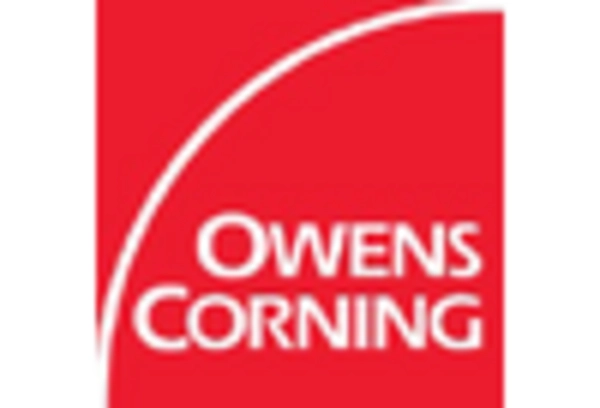Regulatory Support for Innovation
The advanced building-materials market in Germany benefits from robust regulatory frameworks that encourage innovation. The government has implemented various policies aimed at promoting sustainable construction practices, which often include the use of advanced materials. For instance, the German Energy Saving Ordinance (EnEV) mandates energy-efficient building standards, thereby driving demand for innovative materials that meet these criteria. This regulatory support not only fosters research and development but also incentivizes manufacturers to invest in new technologies. As a result, the market is likely to see a surge in the adoption of advanced materials that comply with these regulations, potentially leading to a market growth rate of around 8% annually.
Rising Demand for Eco-Friendly Solutions
There is a notable rise in demand for eco-friendly solutions within the advanced building-materials market in Germany. Consumers and businesses alike are becoming more environmentally conscious, leading to a shift towards materials that minimize ecological impact. This trend is reflected in the increasing popularity of recycled and bio-based materials, which are gaining traction in construction projects. According to recent data, the market for eco-friendly building materials is expected to grow by approximately 10% annually. This shift not only aligns with Germany's commitment to sustainability but also encourages manufacturers to innovate and diversify their product offerings, thereby enhancing the overall market landscape.
Urbanization and Infrastructure Development
Urbanization and infrastructure development are key drivers of the advanced building-materials market in Germany. As cities expand and populations grow, there is an increasing need for modern infrastructure that can accommodate this growth. This demand is particularly evident in urban areas where new residential and commercial projects are underway. The German government has allocated substantial funding for infrastructure improvements, which is likely to boost the market for advanced materials. With an estimated investment of €100 billion in infrastructure projects over the next decade, the advanced building-materials market is poised for significant growth as construction firms seek innovative solutions to meet urban demands.
Technological Advancements in Material Science
Technological advancements in material science are significantly influencing the advanced building-materials market in Germany. Innovations such as nanotechnology and smart materials are paving the way for the development of products that offer enhanced performance and durability. For example, self-healing concrete and energy-efficient insulation materials are becoming increasingly popular. These advancements not only improve the longevity of structures but also contribute to energy savings, aligning with the growing demand for sustainable building solutions. The market is projected to expand as these technologies become more mainstream, with an estimated increase in market value reaching €5 billion by 2027.
Increased Investment in Green Building Initiatives
Increased investment in green building initiatives is shaping the advanced building-materials market in Germany. The government and private sector are channeling resources into projects that prioritize sustainability and energy efficiency. This trend is evident in the rise of green certifications for buildings, which often require the use of advanced materials that meet specific environmental standards. As a result, manufacturers are likely to see a surge in demand for products that contribute to these initiatives. The market is projected to grow by 7% annually as more stakeholders recognize the long-term benefits of investing in sustainable building practices.
